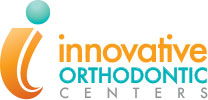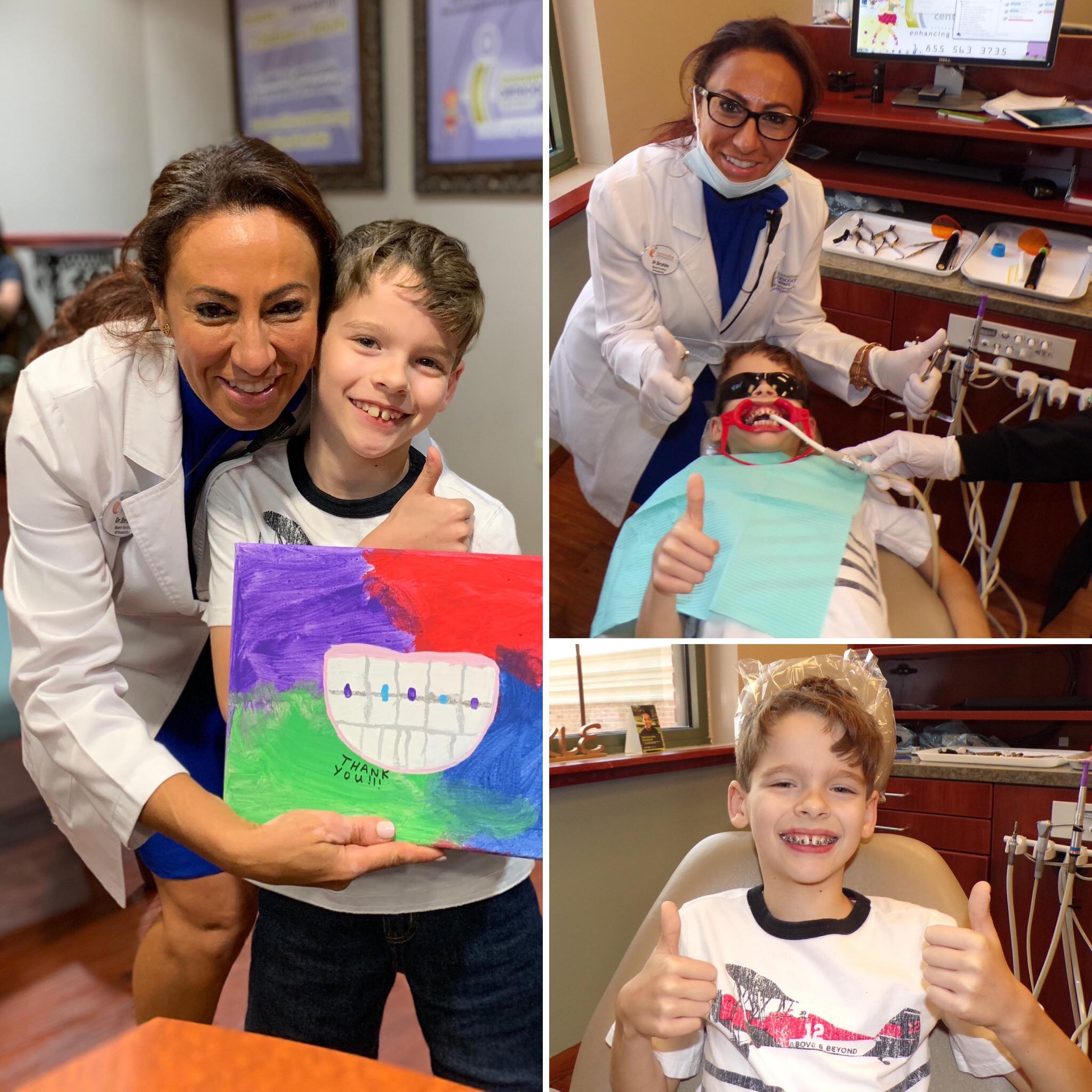According to the American Association of Orthodontists, kids should have an early orthodontic evaluation when an orthodontic problem is first noticed or no later than age seven. This might sound pretty young but, at this age, orthodontic problems begin to become evident. Many times, these early visits just give kiddos the opportunity to get to know the orthodontist and we monitor them until the time is right to start treatment. If we do see certain red flags, early intervention while a child still has baby teeth and is growing can mean easier, quicker, less expensive treatment down the road. At Innovative Orthodontic Centers, Dr. Manal Ibrahim and Dr. Christine Gin have the knowledge and expertise to determine whether or not your child could benefit from early orthodontic treatment and we’ll keep you informed every step of the way.
Why Should I Schedule an Early Orthodontic Evaluation?
By age seven, we can spot emerging orthodontic issues. That’s because at this age:
- The first permanent molars are in, establishing the back of the bite. We can assess your child’s side-to-side and front-to-back relationships of the bite and detect crossbites or functional shifts.
- The incisors have probably started to erupt and issues like crowding, a deep bite, an open bite, jaw discrepancies and bad oral habits will be visible.
Orthodontists like Dr. Ibrahim and Dr. Gin are trained to be able to diagnose even subtle problems that you may not be able to see on your own. At this initial visit, which is complimentary, we might determine treatment isn’t necessary. If we do see that treatment will be needed in the future, your child will enter our complimentary growth and development program so we can monitor them over the years as their jaw and face continue to grow.
Interceptive orthodontic treatment is reserved for kids who have a problem that will get worse if it’s not addressed. The aim of early orthodontic treatment is to intercept the issue, fix the cause, guide the growth of the jaw and facial bones, and make room for the permanent teeth to come into their ideal positions.
Which Problems Are Best Addressed With Early Orthodontics?
Parents often ask us what is the best age to get braces or Invisalign? There is no one right answer! For some kids, the teen years are perfect and for others starting younger is ideal. If we spot these problems, interceptive orthodontic treatment might be the best plan:
- Underbite
- Crossbite
- Extremely crowded teeth
- Significant spacing
- Severe overbite or front teeth protrusion
- Teeth that don’t come together normally or that don’t meet at all (i.e., open bite)
- Bad oral habits, such as thumb sucking, finger sucking and extended pacifier use, that have affected your child’s smile
- Extra or missing teeth
How Does Phase 1 Orthodontic Treatment Work?
For kids who need early orthodontic treatment, the process is usually split into two phases. Phase 1 orthodontic treatment for children refers to the treatment they receive while they still have some of their primary teeth. During phase 1 orthodontic treatment, Dr. Ibrahim or Dr. Gin will treat your child using innovative SureSmile® braces, Invisalign® First (we’re one of the few offices to offer Invisalign for young patients!), Invisalign with Mandibular Advancement or appliances, such as an expander. While your child is still growing, we’ll help guide the development of their jaw and teeth. We always aim to finish phase 1 orthodontic treatment in 12 months or less.
Once this first phase is complete, your little one will be fitted for retainers. We do offer clear Essix retainers for our younger patients, which kids love since they’re comfortable and virtually invisible. We’re also an impression-free office and instead of goopy molds, we take quick, comfy digital scans to create a 3D model of your child’s mouth in order to design their retainers. Most children wear their retainers for six months to a year to hold the permanent teeth where we positioned them. Then, they may stop wearing the retainer to let the rest of their primary teeth fall out naturally.
Kids will continue to participate in our growth and development program and come in for occasional visits until all of their permanent teeth have erupted. At this point, we can determine if they’ll need phase 2 treatment with Invisalign Teen or braces. If phase 2 treatment is necessary, it will likely be simpler and faster than it would have been if they had not completed phase 1.
What are the Benefits of Early Orthodontic Treatment?
There are very real benefits of early orthodontic treatment. Dr. Ibrahim and Dr. Gin are proponents of early intervention for orthodontic problems in children because they’ve seen firsthand the remarkable changes that can be achieved. Here are some of the aims and benefits of phase 1 treatment:
- Makes space for the permanent teeth to erupt as straight as possible
- Prevents a bad bite from developing in an otherwise “normal” mouth
- Corrects harmful oral habits like thumb sucking and tongue thrusting
- Guides jaw growth
- Corrects the crowding of teeth
- Reduces the risk of injury to protruding front teeth
- Creates facial symmetry
- Improves the way the lips meet
- Helps remedy issues with chewing and speaking
- Can prevent the need for extractions, lengthy treatment or surgery
- Improves appearance, self-esteem and confidence!
Is your child ready for an early orthodontic evaluation? Schedule a visit at Innovative Orthodontic Centers in Naperville or Shorewood today by giving us a call at (630) 848-6960 or booking your visit online. Our offices are super kid-friendly (kidzFlix cinema and kidzCave arcade game room, anyone?) and your child will actually like coming in for visits. We use the latest technology to ensure if early orthodontic treatment is needed, it will be effective, efficient and comfortable.




